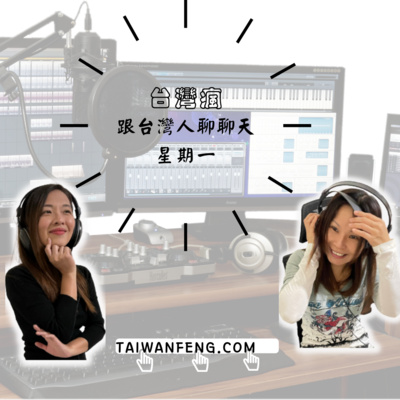
24-1 在歐洲念化學博士的台灣人 A Taiwanese getting her chemistry Ph.D. in Europe - What is she researching? Very hard, but awesome! (Yu Min Episode 3)

Learn Chinese from Taiwanese 跟台灣人學中文
Shownotes Transcript
Yumin is in the doctoral program of the Institute of Polymer Chemistry of the Czech National Academy of Sciences. Her team mainly makes anti-stick surfaces. They plan to adapt this non-adhesive material to the human body. It will be used to make artificial organs, such as artificial hearts or artificial blood vessels, for people who have had a heart attack or a blood clot, resulting in partial damage to the organ, which cannot be restored.
Learn today's episode:
昱敏在捷克國家科學院的高分子化學所念博士班,她的團隊主要是做抗沾黏表面,簡而言之,就是一種材料,髒東西會直接離開,且不會附著,能抗髒、抗汙。他們打算把這抗沾黏的材料應用在人體上,因很多人想做人工器官,比如人工心臟或人工血管,或是有些人因心臟病發或血栓發生,導致器官部分損壞,不能恢復,此時需要用人工材料去做替代。然而,人工材料容易有囤積及沾黏的狀況發生,此時血栓又會再一次發生,因此抗沾黏的材料能在換上去以後,讓血栓不會發生,是個永久的方法...
捷克 Jiékè: Czech
高分子化學所 gāo fēnzǐ huàxué suǒ: graduate school of polymer chemistry
抗沾黏 kàng zhān nián: anti-adhesion
附著 fùzhuó: to adhere
應用 yìngyòng: to put to use; to apply (on)
血栓 xiěshuān: thrombus
損壞 sǔnhuài: to damage
囤積 túnjī: to pile up
…
To keep learning this episode, go here: https://www.taiwanfeng.com/podcast/taiwanese-scientist/)
If you’re more familiar with simplified Chinese, we also have simplified version for this episode, please visit: https://www.taiwanfeng.com/simplified/podcast-cn/taiwanese-scientist-simplified/)
We hope you like our podcast today! Got feedback? We’d love to hear it! Rate us or leave us a review!
Learn Chinese Podcast | Chinese Listening Practice | Learn Taiwanese Mandarin